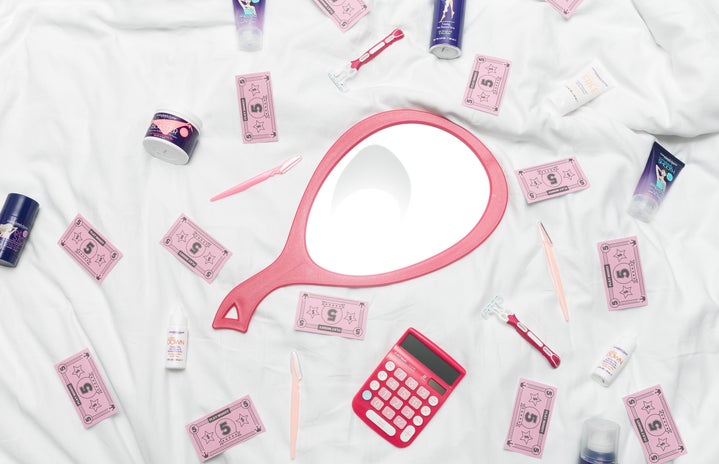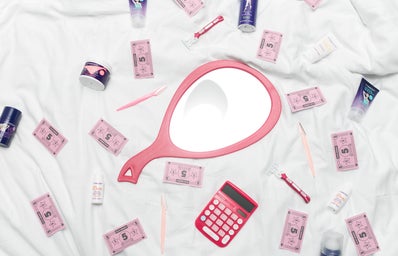Authors: Kelsey Connor, Mia Gajda, Cate Mungovan, Kelly Nelson, Sara Schmitt
This article was written as part of a group project for our Introduction to Gender, Sexuality, and Women’s Studies class. We hope to create awareness about the nationwide issue of the Pink Tax.
What is the Pink Tax?
Investopedia defines the Pink Tax as “a price discrepancy that calls out products and services marketed to women that cost more than identical or nearly identical versions marketed to men.1” But don’t be fooled by the wording – although it’s called a ‘tax’, the additional revenue generated from women’s products is not directed to the government. Rather, companies charge women more to make a higher profit. This is based on the assumption that women are willing to pay more than men for similar products, which is a stereotype that places women at a disadvantage. Keep reading to learn more about other college organizations that are working to eliminate the Pink Tax, and what you can do to help!
What are some organizations that are involved?
There is a nationwide non-profit organization called PERIOD which helps train activists to fight period poverty and end the stigma against periods. With over 90k followers on instagram and several chapters of PERIOD at colleges and universities across the country, huge efforts have been made to end pink tax and make menstrual products more accessible. OSU is an example of an extremely successful chapter that actually teamed up with state officials and eliminated pink tax in Ohio in 2019!!
We were able to connect with the PERIOD chapter at Boston University and asked them some questions! Their chapter was founded three years ago by a group of Master of Public Health students, who believed that all institutions, especially theirs as a school of public health, should provide menstrual products to students on campus just as the school provides toilet paper and paper towels in the bathroom. They encourage us, and all other students, to not be afraid of pushback because they have discovered that most of the other students support them in their efforts to obtain access to menstrual products for those who need them! Lastly, they note that the work to create a world where people have access to these basic products, simultaneously creates a world where periods are “normalized and destigmatized.”
How CAN YOU HELP?
Just by reading this article, you’re already more aware of what the pink tax is. While Massachusetts has fixed it, you can still be aware when shopping for shampoo, body wash and razors. The next time you head over to Target, be aware of even the packaging your favorite products have. Maybe consider why your razors have to be pink or purple, or why when you buy Old Spice deodorant, it’s in the men’s section. Being aware of the gendering of products is the next step in the fight now that pricing is fair. Our products don’t have to be pretty for us to buy them — they’re essentials anyway.
WHAT’S BEING DONE IN OTHER STATES?
Currently, Rhode Island, Washington, Minnesota, Ohio, Illinois, Florida, Maryland, New Jersey, Pennsylvania, New York, Connecticut, Massachusetts, Nevada, Michigan, Vermont, Maine, Louisiana, and California are the only states that have made the “tampon tax” illegal. This does not address all of the other gender based pricing implicated under the umbrella of the Pink Tax, but it is a good start towards pricing equality. In all other states (besides the 5 that don’t have sales tax at all) tampons have an additional luxury tax. In some states (like Arizona), a candy bar could be bought tax free, but an extra tax would have to be paid on tampons. In all of the states that have not repealed the tampon tax, women pay extra every day for health essentials while still being paid less than men on average due to the gender wage gap. Consider joining the fight to end the discriminatory taxing of tampons, especially if your state still has yet to ban the tampon tax.

